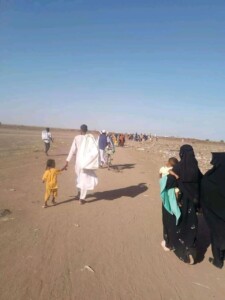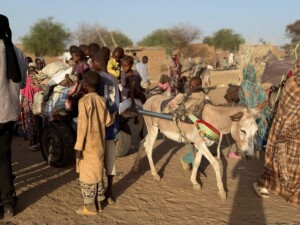More detentions in Sudan – civil disobedience, anti-coup protests continue
Sudanese military and security agents have continued to arrest civilians including civilian authorities, political activists, human rights defenders, members of resistance committees and others as mass protests and civil disobedience campaigns against the coup continue. In an update on the situation in Sudan published at the weekend, the New York based African Centre for Justice and Peace Studies (ACJPS) which works to monitor and promote respect for human rights and legal reform in Sudan, “remains deeply concerned for persons in arbitrary and incommunicado detention”.
 Sudan anti-coup protest (ACJPS - Social Media)
Sudan anti-coup protest (ACJPS - Social Media)
Sudanese military and security agents have continued to arrest civilians including civilian authorities, political activists, human rights defenders, members of resistance committees and others as mass protests and civil disobedience campaigns against the coup continue. In an update on the situation in Sudan published at the weekend, the New York based African Centre for Justice and Peace Studies (ACJPS) which works to monitor and promote respect for human rights and legal reform in Sudan, “remains deeply concerned for persons in arbitrary and incommunicado detention”.
In its brief, ACJPS has documented arrests and detention of civilian authorities, political activists, human rights defenders, members of resistance committees and others between 25 October to 4 November in the states of White Nile, North Darfur, Central Darfur, East Darfur, El Gezira, eastern Sudan, and Sennar.
“Sudanese military and security agents are relying on broad powers to arrest and detain people under the Emergency laws and have threatened to bring criminal charges against detainees,” the brief confirms. “The broad powers under the Emergency law have repeatedly given rise to concerns over arbitrary arrest and detention, ill-treatment and torture, and violations of the right to a fair trial, which are facilitated by the virtually complete absence of safeguards and judicial oversight.”
The ACJPS brief points out that the disruptions to the internet and mobile phone connectivity “continue to hinder rights to share and receive information, free expression and peaceful assembly as well as communications within and out of Sudan”, pointing out that communication disruptions have made it difficult to receive monitoring updates in real time.











 and then
and then